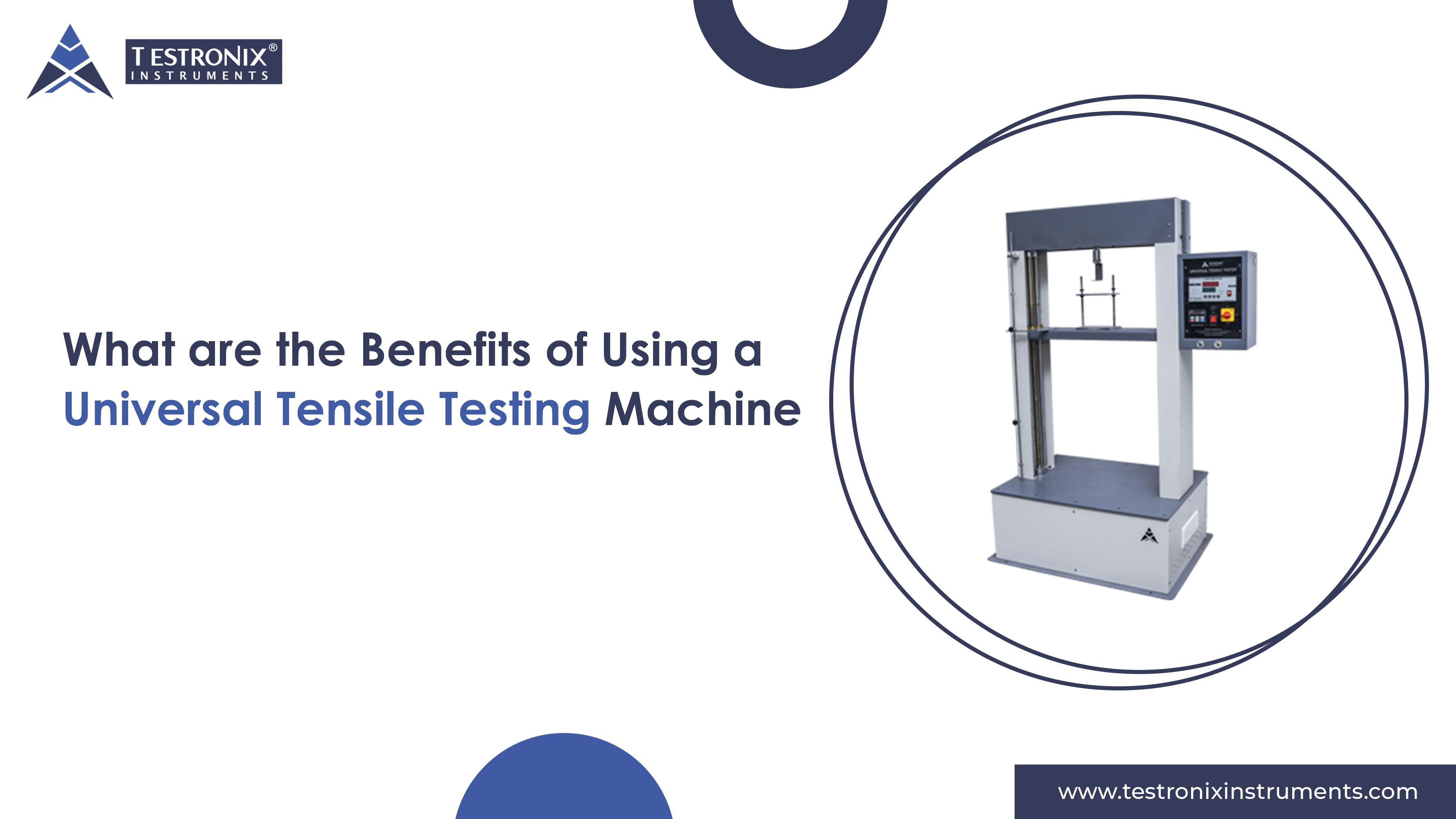Reviewed by Anurag Mishra (Sr. Technical Consultant)

When it comes to ensuring the quality, durability, and reliability of materials in manufacturing and industrial processes, testing plays a vital role. Among the many tools available to perform such tests, the universal tensile testing machine stands out as one of the most important and widely used instruments. Whether you're testing metals, plastics, rubbers, textiles, or composites, this machine delivers accurate and consistent data on a material's tensile strength, elongation, and other critical properties.

From R&D labs to quality control departments, industries rely on tensile testing to make informed decisions about product safety and performance. In this blog post, we will explore the key advantages of using a universal tensile testing machine and why it is considered an essential part of any material testing setup.
The universal testing machine applies controlled tension to a material specimen until it fails or deforms, measuring various physical characteristics such as tensile strength, elongation, yield point, and breaking point. It is called “universal” because it is capable of performing a variety of mechanical tests, not just tensile tests, depending on the fixtures used. This makes it highly versatile and adaptable to multiple testing needs across different industries.
A Universal Tensile Testing Machine (UTM) offers a range of benefits for quality control and material analysis across various industries. It allows precise measurement of tensile strength, elongation, yield strength, and other mechanical properties of materials like metals, plastics, and textiles.
Accuracy is a major benefit of using a universal tensile testing machine. These machines are engineered with high-precision sensors and advanced digital controls that provide reliable and repeatable test outcomes. Consistent data helps companies maintain quality standards and comply with industry regulations. It also minimizes human error, ensuring that the same specimen tested multiple times under the same conditions will yield almost identical results.
Maintains high standards of measurement consistency
Reduces the chances of operator-induced variability
Enables detailed data logging for future reference
One of the standout benefits of a universal tensile testing machine is its ability to test a wide range of materials and products. From thin films to hard metals, the machine can be adapted with the right grips and fixtures to test just about anything. This flexibility reduces the need for multiple testing machines, saving space and investment costs.
Suitable for metals, polymers, composites, textiles, and more
Easily configurable with various load cells and fixtures
Supports multiple test types, including tensile, compression, bending, and peel tests
By providing precise insights into how materials behave under stress, these machines help manufacturers enhance the overall quality of their products. Knowing the tensile strength or failure point allows engineers to make necessary adjustments in design or material selection before mass production. This leads to fewer product recalls and increased customer satisfaction.
Helps in identifying weak spots in the design
Ensures compliance with safety standards and certifications
Reduces defects and material waste
Although the initial investment in a universal tensile testing machine may seem significant, the long-term savings are considerable. By improving testing efficiency, reducing material waste, and lowering the risk of product failures, these machines offer an excellent return on investment. Automation features also reduce the need for continuous operator intervention, saving time.
Reduces labor and operational costs
Automates repetitive test cycles
Minimizes delays due to quality control issues
For companies engaged in innovation, a universal tensile testing machine is an invaluable tool in the R&D phase. It helps scientists and engineers test the performance of new materials or prototypes under real-world conditions. This testing informs critical decisions and accelerates the development cycle of new products.
Provides insights into material behavior under stress
Aids in optimizing formulations and composite structures
Speeds up time-to-market for new innovations
Selecting a reliable manufacturer or supplier of universal testing machines is crucial. They should not only provide the equipment but also offer technical support, calibration services, and training. Reputed suppliers like Testronix ensure that the machines meet international standards and can be customized to your specific testing requirements.
Whether you are setting up a new lab or upgrading your existing setup, choosing the right supplier plays a critical role in the success of your material testing operations.
Look for suppliers who offer:
Certified machines with advanced digital interfaces
On-site installation and maintenance support
Access to spare parts and accessories
Training programs for machine operation and software use
Knowing the benefits of a universal tensile testing machine can solve various technical issues while manufacturing quality products. It is a critical component in the quest for quality, safety, and innovation across industries. Whether you're in automotive, aerospace, construction, or consumer goods, this machine helps you build trust in your products by ensuring they meet the required performance standards.
Investing in a reliable tensile testing setup, along with choosing the right universal testing machine suppliers, is a smart step toward long-term success.